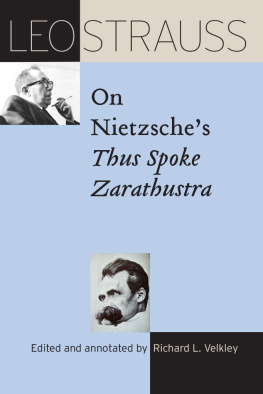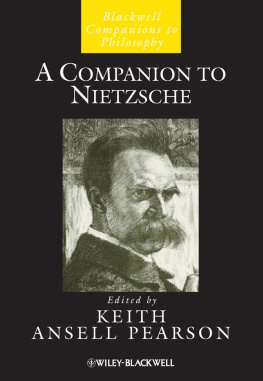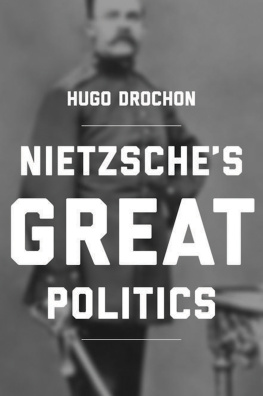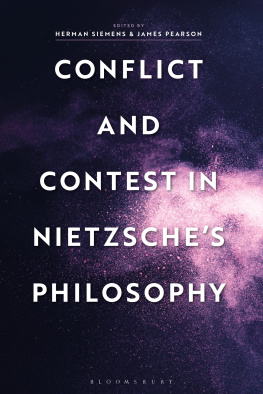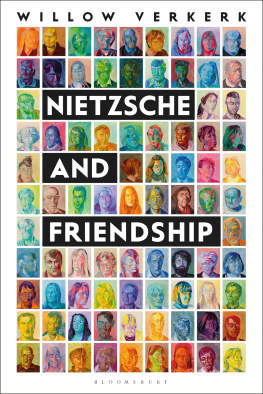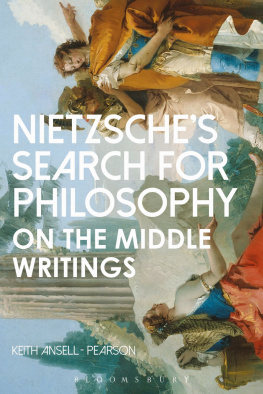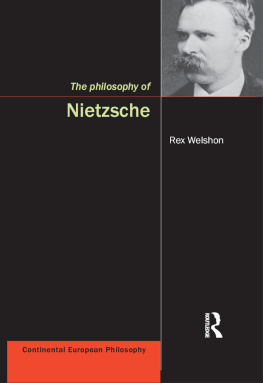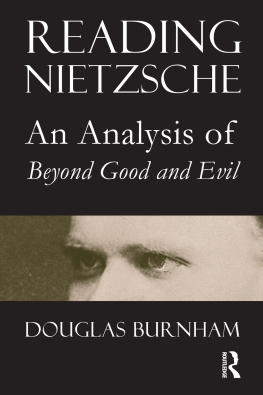First published 2019
by Routledge
2 Park Square, Milton Park, Abingdon, Oxon OX14 4RN
and by Routledge
711 Third Avenue, New York, NY 10017
Routledge is an imprint of the Taylor & Francis Group, an informa business
2019 Mark E. Jonas and Douglas W. Yacek
The right of Mark E. Jonas and Douglas W. Yacek to be identified as authors of this work has been asserted by them in accordance with sections 77 and 78 of the Copyright, Designs and Patents Act 1988.
All rights reserved. No part of this book may be reprinted or reproduced or utilised in any form or by any electronic, mechanical, or other means, now known or hereafter invented, including photocopying and recording, or in any information storage or retrieval system, without permission in writing from the publishers.
Trademark notice: Product or corporate names may be trademarks or registered trademarks, and are used only for identification and explanation without intent to infringe.
British Library Cataloguing-in-Publication Data
A catalogue record for this book is available from the British Library
Library of Congress Cataloging-in-Publication Data
A catalog record for this book has been requested
ISBN: 978-1-138-54451-2 (hbk)
ISBN: 978-1-351-00350-6 (ebk)
Typeset in Bembo
by Apex CoVantage, LLC

In line with the standard citation practices in research on Nietzsche, this book refers to Nietzsches works with the abbreviations listed below. Two citations next to an abbreviation indicate that quotations from the work may follow one or the other cited translation. References to Nietzsches works employ section numbers rather than page numbers, with the exception of Schopenhauer as Educator, On the Uses and Disadvantages of History for Life and On the Future of Our Educational Institutions , for which both section and page number are given. Although translations of Nietzsches works since (and including) the publication of Kaufmanns translations are generally strong, there are always nuances of style and meaning that are lost in the process of translating Nietzsche for general readership. Thus, we have occasionally made slight amendments to the English translation or provided our own where we have felt that the rendering has distorted or obscured the original meaning in the German and have indicated so in a footnote. For this, we have consulted the Kritische Studienausgabe (KSA) and Kritische Gesamtausgabe (KGW) of Nietzsches texts edited by Giorgio Colli and Mazzino Montinari and published by de Gruyter, as well as the digitized version of the KGW (eKGWB) edited by Paolo DIorio and published by Nietzsche Source. In developing its exegetical argument, this book makes use of only those works that Nietzsche felt ready for public or semi-public audience. This includes published works, authorized manuscripts, letters and essays written for friends and family, but not his vast Nachlass (literary estate) of private notes and jottings. Because some of the most influential interpretations of Nietzsches works do not follow this practice, we sometimes refer to portions of his Nachlass collected under the title The Will to Power in order to engage with their readings.
Finally, any citation of a text whose reference information is in German implies that we have translated the passage ourselves.
| A | The Antichrist (1954). In W. Kaufmann (Trans.), The portable Nietzsche . New York, NY: Viking Press. |
| BGE | Beyond Good and Evil (2010). W. Kaufmann (Trans.). New York, NY: Vintage Books. Beyond Good and Evil (2005). J. Norman (Trans.). Cambridge, UK: Cambridge University Press. |
| BT | The Birth of Tragedy (2000). In W. Kaufmann (Trans.), Basic writings of Nietzsche. New York, NY: Modern Library. The Birth of Tragedy (2012). In R. Spiers (Trans.), The birth of tragedy and other writings . Cambridge, UK: Cambridge University Press. |
| CW | The Case of Wagner (2000). In W. Kaufmann (Trans.), Basic writings of Nietzsche. New York, NY: Modern Library. |
| D | Daybreak: Thoughts on the Prejudices of Morality (1997). R. Hollingdale (Trans.). Cambridge, UK: Cambridge University Press. |
| EH | Ecce Homo (1989). In W. Kaufmann & R. J. Hollingdale (Trans.), On the genealogy of morals and ecce homo . New York, NY: Vintage Books. Ecce Homo (1967). W. Kaufmann (Trans.). New York, NY: Random House. |
| FE | On the Future of Our Educational Institutions (2004). M. W. Grenke (Trans.). South Bend, IN: St. Augustines Press. |
| GM | On the Genealogy of Morals (1989). In W. Kaufmann & R. J. Hollingdale (Trans.), On the genealogy of morals and ecce homo . New York, NY: Vintage Books. On the Genealogy of Morals (2000). In W. Kaufmann (Trans.), Basic writings of Nietzsche . New York, NY: Modern Library. |
| GS | The Gay Science: With a Prelude in Rhymes and an Appendix of Songs (1974). W. Kaufmann (Trans.). New York, NY: Vintage Books. The Gay Science (2001). J. Nauckhoff & A. Del Caro (Trans.). Cambridge, UK: Cambridge University Press. |
| HC | Homers Contest (1996). In C. Acampora (Trans.), Nietzscheana #5. Urbana, IL: North American Nietzsche Society. |
| HH | Human, All Too Human: A Book for Free Spirits (1996). R. Hollingdale (Trans.). Cambridge, UK: Cambridge University Press. |
| HL | On the Uses and Disadvantages of History for Life (1997). In R. Hollingdale (Trans.), Untimely meditations . Cambridge, UK: Cambridge University Press. |
| SE | Schopenhauer as Educator (1997). In R. Hollingdale (Trans.), Untimely meditations . Cambridge, UK: Cambridge University Press. |
| TI | Twilight of the Idols (1966). In W. Kaufmann (Trans.), The great books foundation, set 3, vol. 8 . Chicago, IL: The Great Books Foundation. |
| WP | The Will to Power (1968). W. Kaufmann (Ed.) & R. Hollingdale (Trans.). New York, NY: Vintage Books. |
| WS | The Wanderer and His Shadow (1996). In R. Hollingdale (Trans.), Human all-too human . Cambridge, UK: Cambridge University Press. |
| Z | Thus Spoke Zarathustra (1982). In W. Kaufmann (Trans.), The portable Nietzsche. New York, NY: Viking Press. |
Citations of Nietzsches collected works in German are drawn from the following sources:
| KGB | Nietzsche Briefwechsel: Kritische Gesamtausgabe (25 vols.) (19752004). G. Colli & M. Montinari (Eds.). Berlin, Germany: de Gruyter. |
| KGW | Nietzsche Werke: Kritische Gesamtausgabe (24 vols.) (19672006). G. Colli & M. Montinari (Eds.). Berlin, Germany: de Gruyter. |
| eKGWB | Nietzsche Werke: Kritische Gesamtausgabe (24 vols.) & Nietzsche Briefwechsel: Kritische Gesamtausgabe (25 vols.) (n.d.). Paolo DIorio (Ed.). www.nietzschesource.org/#eKGWB |
| KSA | Kritische Studienausgabe (15 vols.) (1999). G. Colli & M. Montinari (Eds.). Berlin: de Gruyter. |
New Directions in the Philosophy of Education
Series Editors: Michael A. Peters
University of Waikato, New Zealand; University of Illinois, USA
Gert Biesta
Brunel University, UK
This book series is devoted to the exploration of new directions in the philosophy of education. After the linguistic turn, the cultural turn, and the historical turn, where might we go? Does the future promise a digital turn with a greater return to connectionism, biology, and biopolitics based on new understandings of system theory and knowledge ecologies? Does it foreshadow a genuinely alternative radical global turn based on a new openness and interconnectedness? Does it leave humanism behind or will it reengage with the question of the human in new and unprecedented ways? How should philosophy of education reflect new forces of globalization? How can it become less Anglo-centric and develop a greater sensitivity to other traditions, languages, and forms of thinking and writing, including those that are not rooted in the canon of Western philosophy but in other traditions that share the love of wisdom that characterizes the wide diversity within Western philosophy itself. Can this be done through a turn to intercultural philosophy? To indigenous forms of philosophy and philosophizing? Does it need a post-Wittgensteinian philosophy of education? A postpostmodern philosophy? Or should it perhaps leave the whole construction of post-positions behind?


